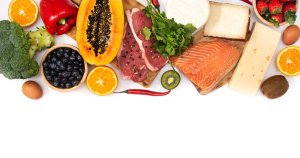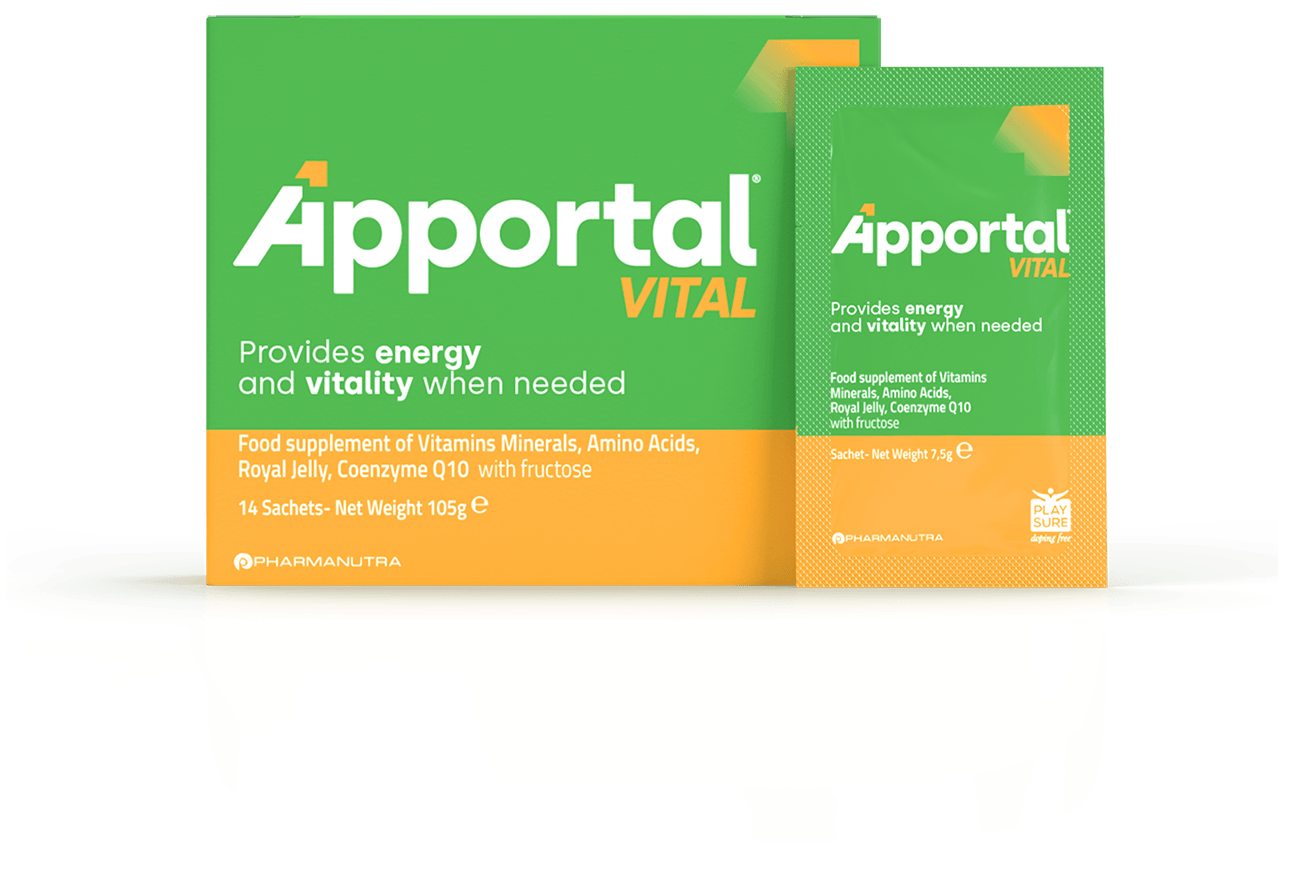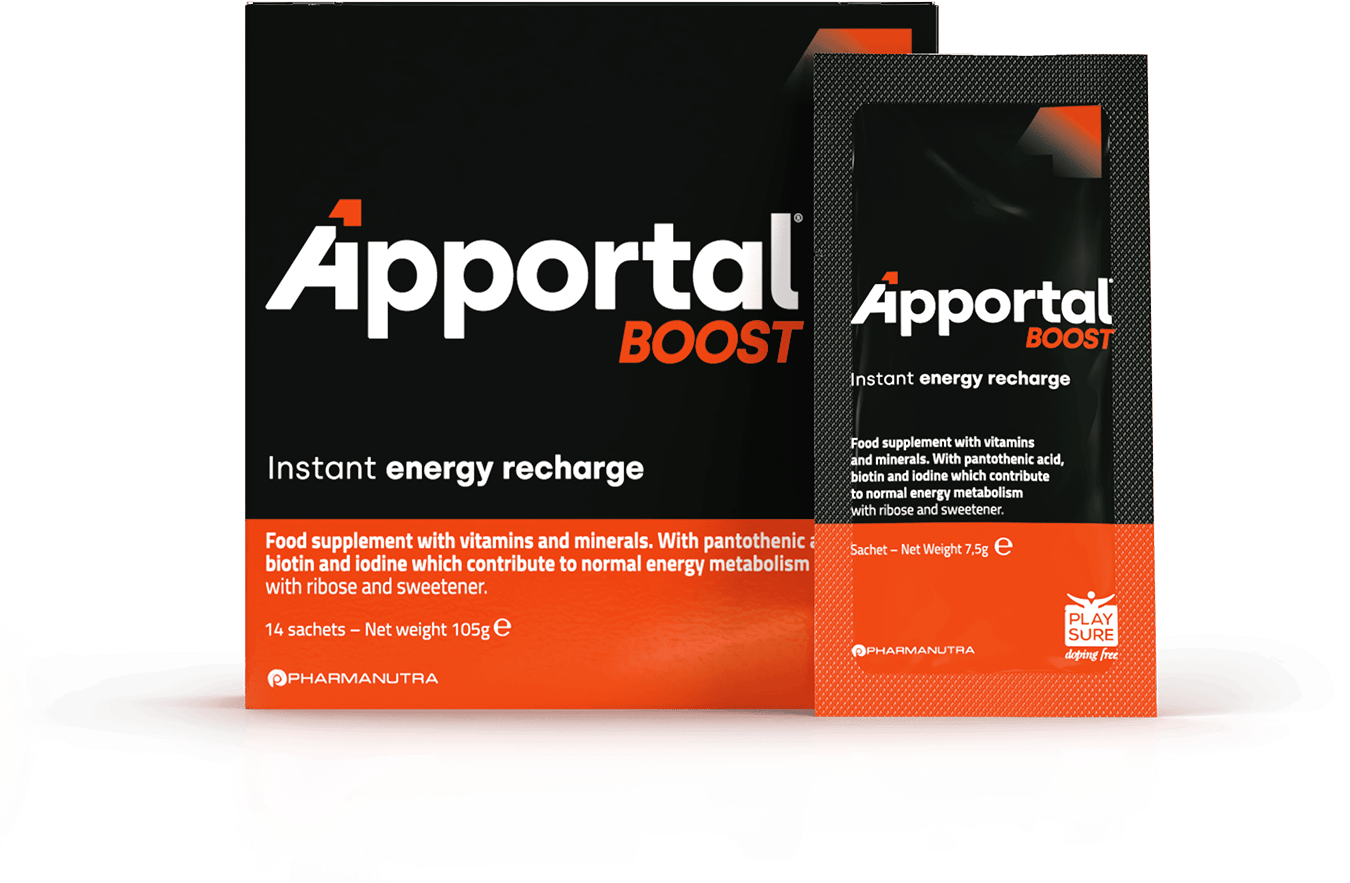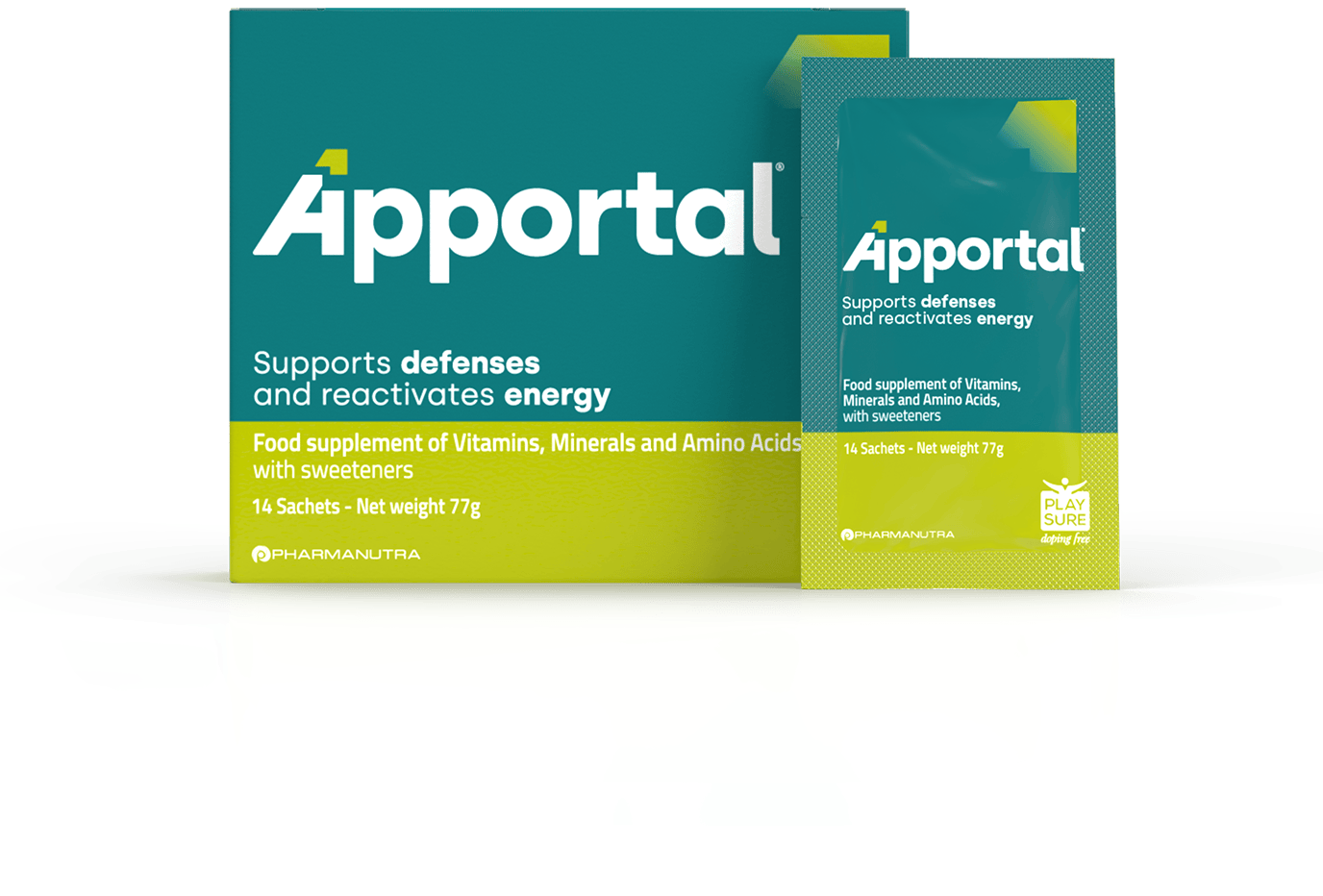The immune system is that barrier that helps the body to defend itself from foreign agents, such as micro-organisms (bacteria, viruses, fungi), parasites, damaged or anomalous cells, or unrecognised tissues.
To defend the body, the immune system activates antibodies, as well as various specialised molecules and tissues, including white blood cells.
The human body also uses physical barriers to defend itself from pathogens. For example, the ciliary epithelium and the cells that produce mucus present in the upper respiratory tract: cilia and mucous membranes are the first barrier against micro-organisms and foreign matter (pollen, dust) found in the air we breathe in.
Some conditions put a strain on the immune system, such as prolonged exposure to smog, periods of intense physical and mental stress, a diet poor in fruit and vegetables, not enough sleep. All these factors, along with the normal risks caused by the change of seasons, weaken the immune system and reduce its ability to react to inflammation.
Advice for strengthening the immune system
When the immune system is weak, there is a risk of falling ill, from the simplest cold to flu with a high fever, migraine, intestinal problems and obstruction of the respiratory tract.
How to run for cover? Taking a few precautions in our everyday lives, and, when needed, making recourse to nutritional supplements that can strengthen our immune defences.
- Healthy diet: a varied, balanced diet, rich in all nutrients, remains the essential starting point for ensuring well-being for the whole body. Fruit and vegetables are particularly rich in vitamins and minerals that effectively help the immune system.
- Sleep: it is very important to ensure at least 7-8 hours of sleep a day. In fact, it is precisely during night-time rest that our body processes the proteins taken in with food, using them to fight potential pathogens.
- Physical activity: regular exercise, without overdoing it, helps to strengthen the immune system, but not only. It also helps to keep cholesterol in check, preventing the risk of developing heart disease, and reduces the risk of musculoskeletal disorders.
- Personal hygiene: taking care of personal hygiene is fundamental for reducing the risk of infections, remembering to wash the hands thoroughly and frequently, especially when you are away from home.
- Avoid crowded places: this advice is particularly useful when we are already feeling a little weak. Being in large crowds increases the risk of contracting viruses when the immune defences are low.
- Avoid sudden changes in temperature: in the winter, don’t keep the temperature too high at home, as the subsequent exposure to the cold outside weakens the immune system.
The vitamins and minerals that help the immune system
When we talk of a healthy, balanced diet, we refer to a diet that completely meets our body’s nutrient and energy needs. At any time of the day, and even the year, our body has to respond to different needs, and this is why it is important to learn to eat foods that are in season.
Which vitamins and minerals are most useful for helping to strengthen our immune defences? Let’s see which nutrients are essential for our well-being and which foods have them in the greatest quantities:
- Vitamin A: strengthens the mucous membranes, which are the first barrier against external aggressions, and help to protect the lungs from infections. Several foods contain Vitamin A, but carrots, spinach, cabbage, pumpkin, chicory, tomatoes, avocado, apricots, peaches and watermelon are particularly rich.
- Vitamin C: it is a very precious substance for stimulating the immune defences and preventing and curing flu syndromes. Moreover, vitamin C helps to protect the body from free radicals.
To top up on vitamin C, the diet should include citrus fruits, berries, cherries, melon, watermelon, pineapple, kiwi and papaya, chilli pepper, sweet peppers, potatoes, tomatoes and green leaf vegetables.
- Vitamin D: is fundamental to maintain healthy bones, as it stimulates the absorption of calcium and phosphorus. It is also essential for stimulating the production of endorphins, serotonin and dopamine, which help to fight stress and depression. Oily fish has a high concentration of Vitamin D, along with eggs, milk and dairy products.
- Zinc: it is a precious oligo-element that helps to fight free radicals, and also has an antioxidant action and antiviral effect.
Foods that help us to top up on zinc include fish, red meat, pulses, walnuts, dark chocolate, egg yolk, mushrooms, pumpkin and sunflower seeds, whole wheat cereals and brewer’s yeast.
- Iron: it is essential for the well-being of the body as it stimulates the production of haemoglobin and red blood cells, ensuring the correct oxygenation of the body’s cells. Iron can be found in both animal and vegetable sources, and beef, ham, bresaola, fish, shellfish, crustaceans, Brussel sprouts, spinach, dark chocolate, almonds, dried figs are all rich in iron.
- Selenium: it has antioxidant properties, supporting the immune system function and promoting the production of antibodies. It is found above all in foods of animal origin, particularly sea food, as well as in numerous cereals, pulses, fruits and vegetables.
Supplements for strengthening the immune system
When a healthy, varied diet is insufficient as the natural vitamin and mineral requirement increases, for example in the winter or when we are particularly tired, stressed or suffer from asthenia, ApportAL® and ApportAL® VitAL can help both to recover energy and support the immune system. With their complete formulation, specific for supporting the immunomodulating function (link) in our body, they help to strengthen our immune defences and increase the ability to shield from viruses and bacteria.







